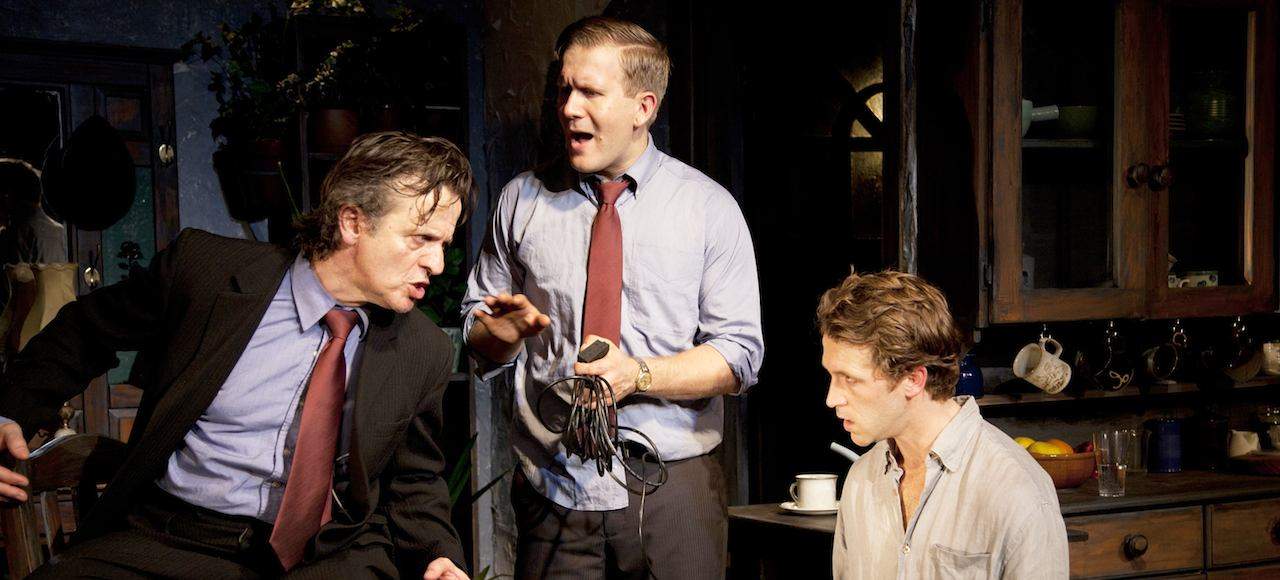The God of Hell – MopHead Productions
Can those in power do anything they want while satisfying and silencing us with Krispy Kremes?
Overview
If you love black humour, subversive ideas and being a little bit terrified, The God of Hell at the Old Fitz is for you. Director Rodney Fisher brings the work of prolific American playwright Sam Shepard to this intimate stage in Woolloomooloo. He keeps the accents, Wisconsin setting and American flag paraphernalia, yet the universal themes of Shepard’s script, along with Fisher’s rationale, make this unsettling psychological thriller equally relevant to a Sydney audience.
On first entry into the cosy farmhouse set — with its warm, winter sunlight and cluttered greenery — you are transported to the slow-paced, small-minded world of humble, hardworking farmers Frank (Tony Poli) and Emma (Vanessa Downing). In this world, time moves slowly, as it surely would when your ageing spouse is the only other human for miles around.
The unhurried silence is punctuated only by the refilling of Emma’s watering can. As much as we are lulled by the rural midwest accents, naive characterisation and willed ignorance of Frank and Emma, we feel a constant uneasiness about how long their serenity and happiness can last. And, sure enough, a super slick salesman barges in the front door, wielding an American-flag cookie like a gun.
You must see the show in order to believe how total and menacing each character’s complete transformation may be, perhaps most of all Poli's. Ben McIvor is horrifying as Mr Welch, a businessman who would cut throats in the name of progress and do it all with a Colgate smile.
All actors give immensely strong performances: Downing provides a great energy for Emma, who cannot ignore the capitalist claws scratching at the front door but maintains her conviction and fight. Meanwhile, Jake Lyall plays the mysterious Haynes, whose outbursts make us wonder if he is friend or foe. Accent coach Linda Nicholls-Gidley should take credit for the embodied, natural and non-distracting American dialogue. The blocking and physicality is also exceptional.
The director’s note in the program alerts us to local examples of environmental exploitation, and, subtly, the whole show asks us to wake up and take interest in just who we’re handing power over to, and at what cost. Although we don’t fully identify with the star-spangled banners, the suspicious whispers about ‘foreigners’ seem all too familiar. With key monologues delivered out towards the audience and instances of actors piercing the fourth wall with their gaze, The God of Hell does more than offer passive entertainment. It asks whether those in power can do anything they want, while satisfying and silencing us with Krispy Kremes.





